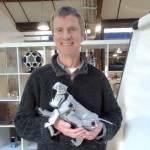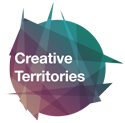Workshop 2 – Creative Territories: Cultures and Contexts in Europe – Utrecht University
When
Thursday, 21st August
9.30am – 3pm. This workshop will take place as part of the European Summer School in Game and Play Research: Identity and Interdisciplinarity in Games and Play Research to be hosted by Creative Territories project partner, Utrecht University. The workshop participants will benefit from engaging with researchers and students from across Europe, broadening the scope of investigations into cultural and industrial contexts of indie game development.
Where
Utrecht University
Schedule
Open
Session 1: 9.30 – 10.30 Keynote from Patrick Crogan and Helen Kennedy: The Creative Territories Project: Exploring Cultural Values of Indie Games Collaboration
Session 2: 10.30 – 12: Three Breakout Workshops: students to sign up for one before the start of the School
Workshop 1: What and Where is an Indie Game? (Patrick Crogan)
Workshop 2: Mario is from Kyoto and Fez is from Montreal: Colocation and collaboration (Dan Ashton)
Workshop 3: How do Creative Territories Facilitate Participation and Inclusion? (Helen Kennedy)
Lunch: 12.00 – 13.00
Session 3: 13.00 – 13.45: Workshop Groups prepare presentations of findings.
Session 4: 13.45 – 15.00: Plenary: Presentations from Workshop groups and Discussion /summarising
Session 5: 15.00 – 17.00: Visit Dutch Game Garden
Workshop Details (and preparation):
Workshop 1: What and Where is an Indie Game?
Preparation: See ‘Who’s Indie Now?’ by Niels Hoogendoorn at www.creativeterritories.dcrc.org.uk; see the Gamedevmap at http://www.gamedevmap.com/ ; see also p. 1-5 of Sy Taffel, ‘Escaping Attention: Digital Media Hardware, Ecology and Material Cost’ Culture Machine 13 (2012), 1-28, at http://culturemachine.net/index.php/cm/issue/view/24
In this workshop we will explore how indie games are understood in relation to different notions of territory/place. The games make spaces for play, and they take place in digital and ‘real’ places where people live and work, computers are plugged in and wifi and packet data is transmitted. The goal will be to map some connections between places where indie game development, publishing and playing happen as a way of understanding them as digital objects that relate local and global networks together. Mapping the cultural, political-economic and ecological dimensions of this relation is the goal. We will try to develop a critical compass for navigating the maps using some ideas from philosopher Bernard Stiegler and materialist accounts of digital media and technoculture.
Workshop 2: Mario is from Kyoto and Fez is from Montreal: Colocation and collaboration.
Preparation: read Shenja ven der Graaf, ‘Get Organized at Work! A Look Inside the Game Design Process of Valve and Linden Lab’, Bulletin of Science, Technology & Society 32:6 (2012), p. 480-488; see the Gamedevmap at http://www.gamedevmap.com/
This workshop will explore where and why games development is located. Firstly, we will explore gaming as a global industry that can be rooted in specific places and national contexts. Case studies from the Creative Territories network will then be shared to examine different environments for creative collaboration.
Workshop 3: How do Creative Territories Facilitate Participation and Inclusion?
Preparation: Read Heather McLean’s “Digging into the Creative City: A Feminist Critique”, Antipode 46:3 (2014), p. 669-690. This provides a case study of an activist art collective in Toronto which offers a useful critique of the assumptions around the ‘creative class’. Also, orient yourself by looking over our project blog: https://creativeterritories.dcrc.org.uk/
In this session we will consider the extent to which creative hubs in general and games hubs in particular are successful in accommodating difference. Like the other sessions in this strand it would be very helpful if you could research creative territories in your own locale and bring with you an overview of what they do, some indication of the demographics (age, gender, ethnicity etc.) and any sessions, activities or initiatives they may run which appear to address issues of inclusion/participation.
General Preparation
Any questions? patrick.crogan@uwe.ac.uk
Presenters/Facilitators

Patrick Crogan teaches film and media at the University of the West of England and is a member of the Digital Cultures Research Centre there (www.dcrc.ork.uk). He wrote Gameplay Mode: War, Simulation and Technoculture (2011), and researches across the theory-practice interface on issues of digital technocultural transformation. with Auroch Digital and Janet Jones of Middlesex University, he worked on JtR125, a game/documentary hybrid project for the REACT ‘Future Documentary’ Sanbox. He leads the Creative Territories Network.
Helen Kennedy is Deputy Head of the School of Art, Design and Media in Brighton. Helen is a former President of DiGRA (2009 – 2012) and a key member of the Women in Games advisory board and advocacy community since its inception. Most recently Helen has been engaged in an international collaboration Feminists In Games and has staged the first all female games jam in 2012 as part of the London Games Festival. As well as participating in this network Helen is also working with an Architect to design challenging location based games in Brighton. And she is on the advisory board for Bristol Games Hub.
Dan Ashton is a senior lecturer at Bath Spa University and teaches on the Media Communications and Creative Media Practice degree programmes. His research explores working in the creative industries. He has published articles: on the transitions between studying in higher education and working in the videogames industry; forms of co-creation between videogames designers and players; and videogames walkthroughs as forms of expertise. He is also the co-editor of Cultural Work and Higher Education – a collection examining how students pursue and critically evaluate work in the creative industries.





